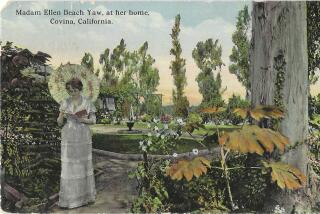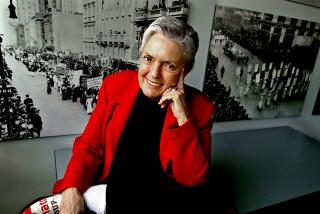Peter Yarrow of ’60s folk trio Peter, Paul and Mary dies at 86

- Share via
Peter Yarrow, who helped make folk music a pop phenomenon in the 1960s as one-third of the vocal trio Peter, Paul and Mary, died Tuesday at his home in New York. He was 86.
His death was confirmed by his publicist, Ken Sunshine, who said the cause was bladder cancer.
Yarrow was the tenor in Peter, Paul and Mary, his tender and attentive vocals sandwiched between the soothing baritone of Noel Paul Stookey and the airy contralto of Mary Travers. He co-wrote and sang lead on one of the group’s biggest commercial hits, “Puff the Magic Dragon,” which he based on a poem by Leonard Lipton and which reached No. 2 on Billboard’s Hot 100 in 1963.
The song tells the story of a young boy and the imaginary playmate whom he eventually outgrows; for years, many speculated that it was really about smoking marijuana, an interpretation Yarrow consistently denied. In 1978, CBS aired a popular animated TV special based on the song with Burgess Meredith as the voice of Puff.

Among the trio’s other well-known tunes were their richly harmonized renditions of Pete Seeger’s “If I Had a Hammer (The Hammer Song),” Bob Dylan’s “Blowin’ in the Wind” — which they performed at the famous March on Washington where the Rev. Dr. Martin Luther King Jr. delivered his “I Have a Dream” speech — and John Denver’s “Leaving on a Jet Plane,” which topped the Hot 100 in 1969.
They won five Grammy Awards, scored two No. 1 albums and received the Sammy Cahn Lifetime Achievement Award from the Songwriters Hall of Fame.
Yarrow’s death leaves Stookey as the sole surviving member of Peter, Paul and Mary; Travers died in 2009 at 72.
In a statement, Stookey called Yarrow his “creative, irrepressible, spontaneous and musical younger brother” and said he “grew to be grateful for, and to love, the mature-beyond-his-years wisdom and inspiring guidance he shared with me like an older brother.”
“Politically astute and emotionally vulnerable, perhaps Peter was both of the brothers I never had… and I shall deeply miss both of him,” Stookey added.
The 81-year-old songwriter and composer is the subject of a new biography by former Times pop music critic Robert Hilburn.
Like many of their peers in the ’60s folk-revival scene, Peter, Paul and Mary used their pop success to draw attention to a litany of progressive political causes including civil rights and the fight against the war in Vietnam. Yet Yarrow also spent three months in jail in 1970 after he pleaded guilty to taking “indecent liberties” with a 14-year-old girl after she’d come to his hotel room for an autograph and he answered the door naked. In 1981, he was pardoned by President Jimmy Carter, who died last month at 100.
“I do not seek to minimize or excuse what I have done and I cannot adequately express my apologies and sorrow for the pain and injury I have caused,” he told the New York Times in 2019 after an arts festival in upstate New York called off a performance he’d been scheduled to give.
Yarrow was born May 31, 1938, in New York, the son of Jewish immigrants from Ukraine. He took up music while studying psychology at Cornell and after graduating began performing in the folk clubs of Greenwich Village. In 1960, he played the Newport Folk Festival and met Albert Grossman, the well-connected music impresario, who eventually teamed Yarrow with Stookey and Travers to form Peter, Paul and Mary. The trio released their self-titled debut album in 1962; it went on to sell more than 2 million copies.

Peter, Paul and Mary stayed busy through the rest of the decade, issuing more than half a dozen LPs and assisting Eugene McCarthy’s presidential campaign in 1968; the next year, Yarrow married the candidate’s niece Mary Beth McCarthy, whom he later divorced before remarrying her in 2022, according to the New York Times. Yarrow joined the board of the Newport festival and is said to have been at the sound board in 1965 when Dylan gave the notorious electric performance depicted at the climax of the new Dylan biopic “A Complete Unknown.”
Peter, Paul and Mary broke up not long after “Leaving on a Jet Plane,” and each member went on to a solo career. The trio reunited in 1972 to support George McGovern’s bid for the White House; in 1977, Mary MacGregor topped the Hot 100 with “Torn Between Two Lovers,” which Yarrow co-wrote with Phillip Jarrell. Peter, Paul and Mary got back together again in 1978 and continued to perform and make albums until Travers’ death, after which Yarrow and Stookey occasionally played together.
In addition to McCarthy, Yarrow’s survivors include their two children and a grandchild.
More to Read
The biggest entertainment stories
Get our big stories about Hollywood, film, television, music, arts, culture and more right in your inbox as soon as they publish.
You may occasionally receive promotional content from the Los Angeles Times.











